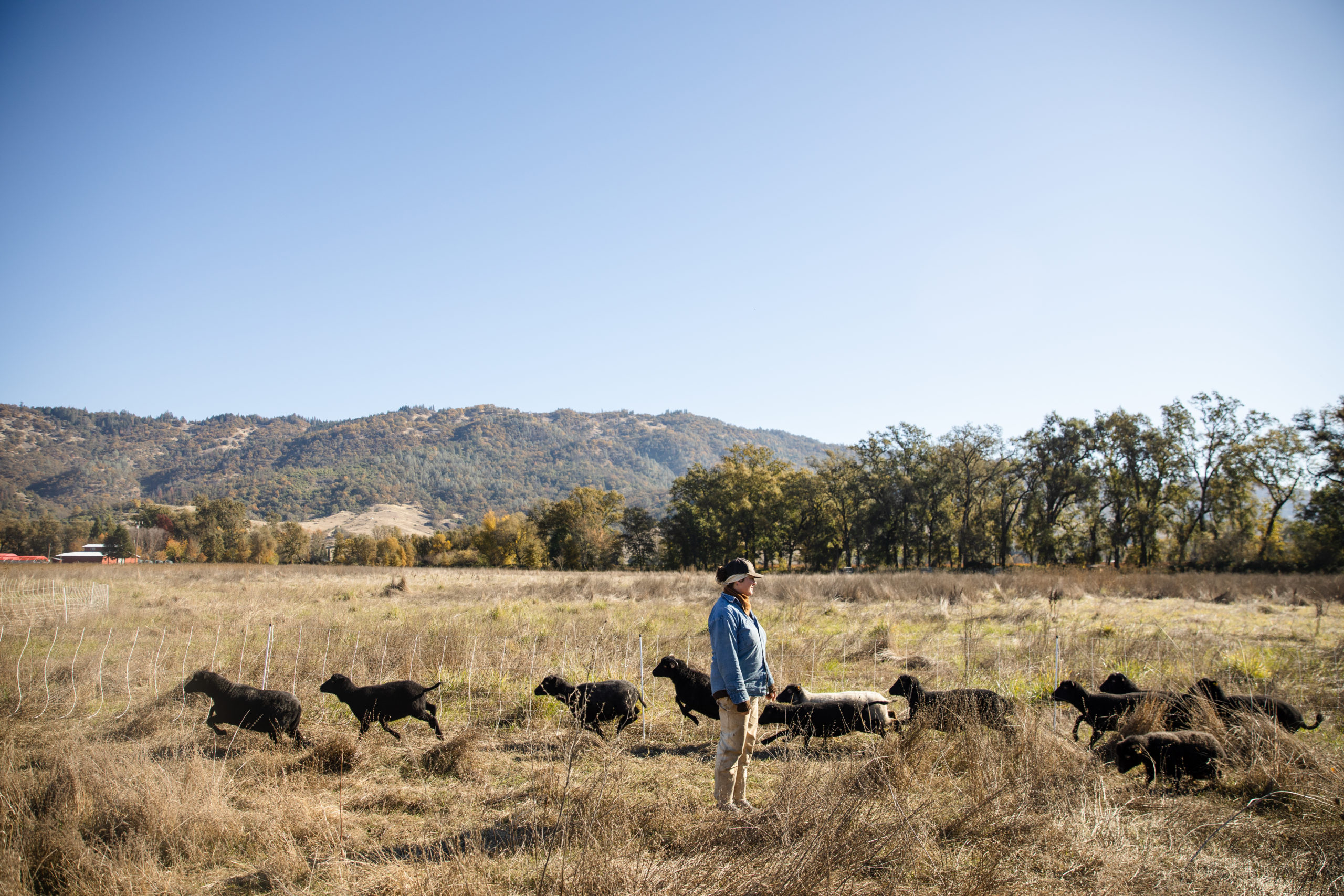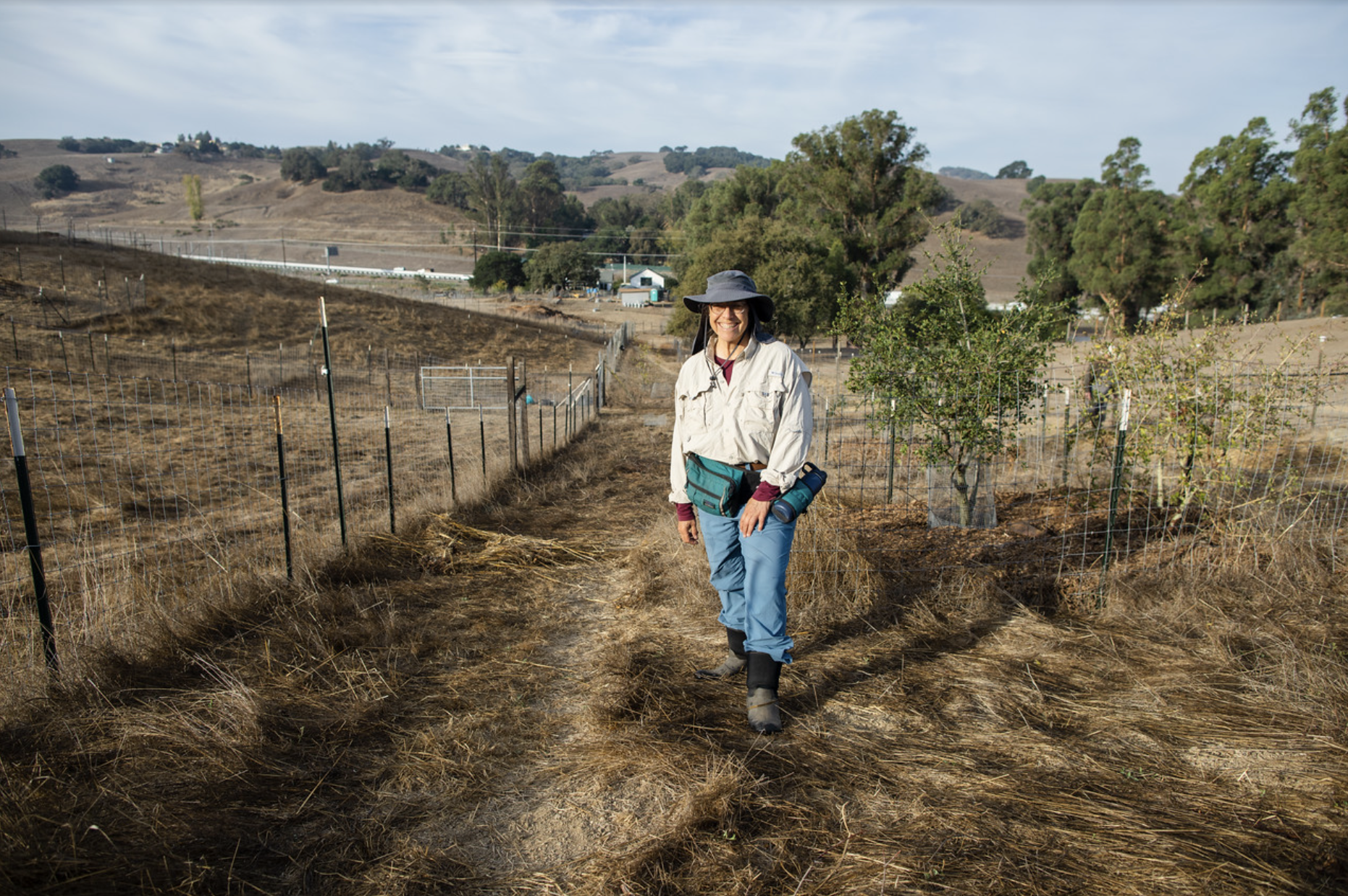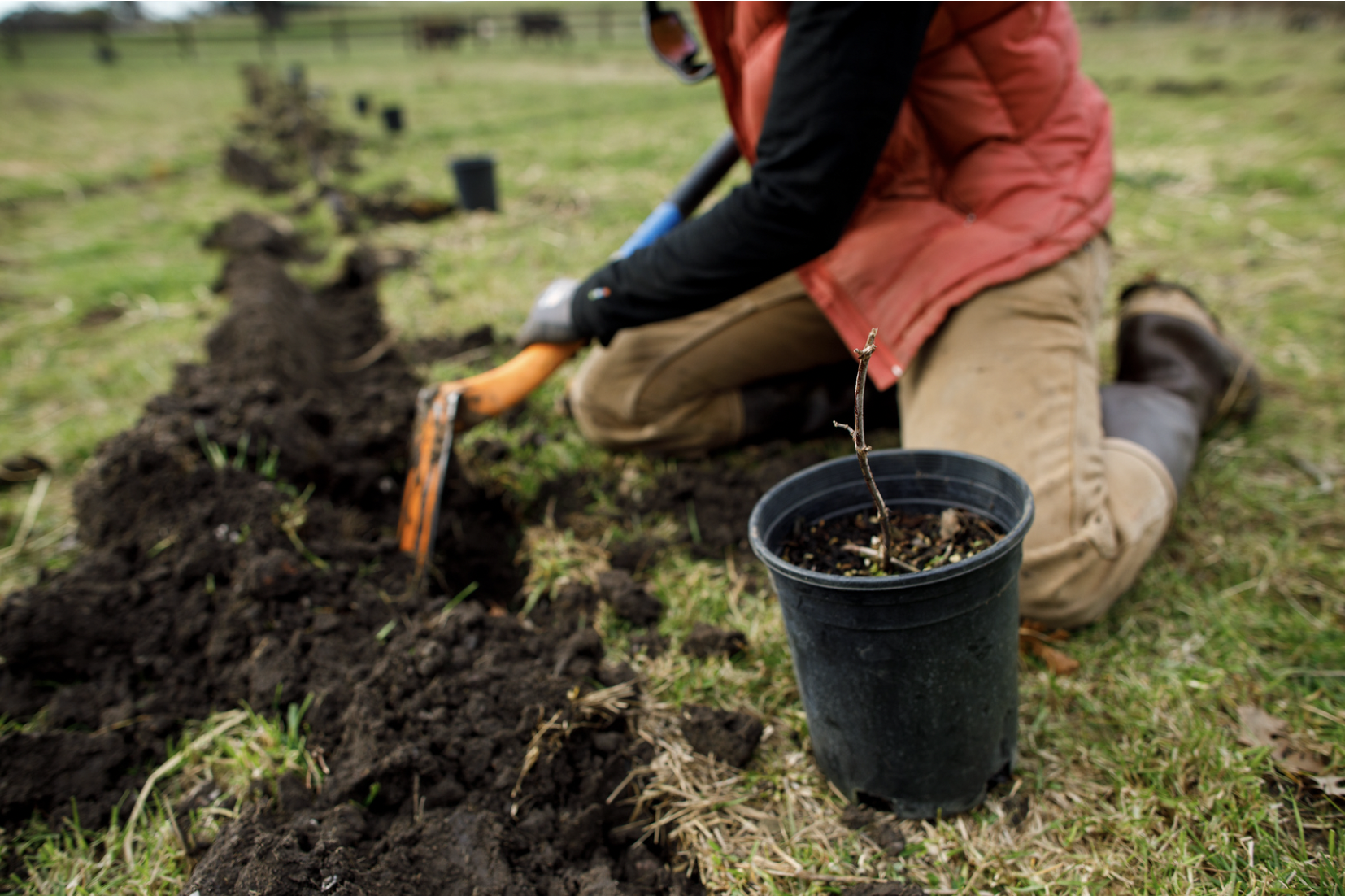Scaling Opportunities for Carbon Farming

2022 was a groundbreaking year for Climate BeneficialTM fiber systems. Since its inception, Fibershed has been working to advance the adoption of carbon farming practices, which move carbon from the atmosphere into plant life and soil ecosystems. When implemented in agriculture, carbon farming practices can help restore balance to the Earth’s climate, build resilience to drought, and naturally increase agricultural productivity. Over the years, we have grounded this work in our local and regional network of producers — building relationships, capacity, education, and support to scale its impact. In 2022, we saw these efforts flourish into a remarkable expansion, both regionally and nationally.
Regionally, we saw the interest in carbon farming grow dramatically with a simultaneous increase in demand for technical and financial support to implement practices. In 2022, Fibershed awarded over $120,000 to 29 producers to fund their carbon farming projects.
Nationally, we experienced first-of-its-kind support for climate-smart agriculture with the USDA’s commitment of $3.1 billion to support a diverse range of farmers and ranchers to leverage the greenhouse gas benefits of climate-smart commodity production. Fibershed and our partners at the National Center for Appropriate Technology, Carbon Cycle Institute, Colorado State University, New York Textile Lab, and Seed2Shirt were proud to be among the recipients and will work to scale the Climate Beneficial Program in four regions throughout the U.S.
Our 2022 Carbon Farm Fund Report describes this progress and the steps we are taking to meet the growing need among producers for technical support and financial assistance. Fibershed is optimistic about the future of our natural fiber systems, and we are poised to continue modeling the immense benefits of carbon farming practices while advocating for equitable systems to scale their adoption.
Continue reading for highlights from the 2022 report!

Scaling Carbon Farming Practices through Grant Funding
Fibershed provides operational support to producers through financial and technical assistance to scale the implementation of soil-building carbon farming practices. Fibershed’s Carbon Farm Seed Fund was created to provide direct financial assistance to producers enrolled in the Climate Beneficial Program. In 2022, producers in the Climate Beneficial Program collectively implemented 162 carbon farming practices, accounting for an estimated 18,566 metric tons (Mg) of CO2e sequestered and 23,422 Mg CO2e drawdown projected over the next 20 years. Examples of these projects include applying compost to rangelands, native seeding of pastures, planting hedgerows, and prescribed grazing with the support of infrastructure improvements.
Fibershed highlighted several producers who were recipients of this round’s Carbon Farm Seed Fund and who have been working to implement regionally appropriate carbon farming practices on the lands they steward. Explore their stories to learn more about the methods and benefits of carbon farming.
“Among our several goals for atmospheric carbon drawdown and improvement of soil health, a high priority for our ranch has been compost application onto sheep pastures. We are very grateful to Fibershed and honored to have been awarded a Carbon Farm Seed Fund Grant to purchase compost for nearly ten acres. Like many small ranches, we operate on something of an ‘economic edge’ and the financial aid granted by the Fibershed truly has been a boon to our ranch operations.”
– Lynn & Jim Moody of Blue Oak Canyon Ranch

Scaling Carbon Farming throughout the U.S.
Fibershed, in collaboration with five project partners (National Center for Appropriate Technology, Carbon Cycle Institute, Colorado State University, New York Textile Lab and Seed2Shirt), applied for funding through the new USDA Partnerships for Climate-Smart Commodities grant program. Our project, “Climate Beneficial Fiber: Building New, Accessible, and Equitable Market Opportunities for Climate-Smart Cotton and Wool,” was awarded $30 million to scale the Climate Beneficial Fiber program in four regions over the next five years: California, Northern Great Plains, New York Hudson Valley, and the Southeast Cotton Belt, with particular support offered to Black cotton farmers.
The project will expand the existing Climate Beneficial fiber program, an established, market-proven system for sequestering carbon, regenerating soil health and resilience, improving social equity, and bolstering America’s ability to produce fiber. The 20-year greenhouse gas impact of practices implemented on a share of the participating farms during the grant period is projected to be a reduction of 2.6 million metric tons of CO2e. Other benefits will include reduced application of synthetic fertilizers, improved soil health, increased soil organic matter and water holding capacity, and enhanced resilience to a changing climate. A new open-source Carbon Farm Planning and Verification Platform will streamline planning and verification for producers, verifiers, and supply-chain stakeholders.
“Climate Beneficial Wool growers took the first risk with us in 2015 and now Climate Beneficial cotton growers are putting themselves out to trial new ways of doing things for the health of the soil. This grant allows us to build out the markets in the ways that we need to, to keep rural communities strong, farmers farming, and ranchers ranching in a way that puts carbon back where it belongs.”
— Rebecca Burgess, Executive Director
The progress made in 2022 was pivotal for the future of our fiber systems. We are energized by the local and national investment in scaling carbon farming practices and the continued dedication of our regional farmers and ranchers to transition to soil-building practices.
Learn more about Fibershed’s Climate Beneficial Agriculture program in our 2022 Carbon Farm Fund Report.
Images by Paige Green Photography
